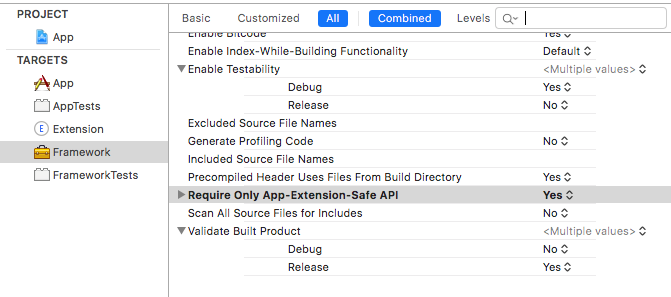I have a dynamic framework that is shared between an iOS application and an extension. There is some code in that framework that references UIApplication, that is of course, not usable in an extension. Those calls are completely isolated and so I am not worried about them causing problems with my extension.
Since there isn't a flag specified in the warning message, perhaps there isn't way to do it, but how do I suppress warning: linking against dylib not safe for use in application extensions when building my project?




Require Only App-Extension-Safe APIsolved this! – Sharasharai